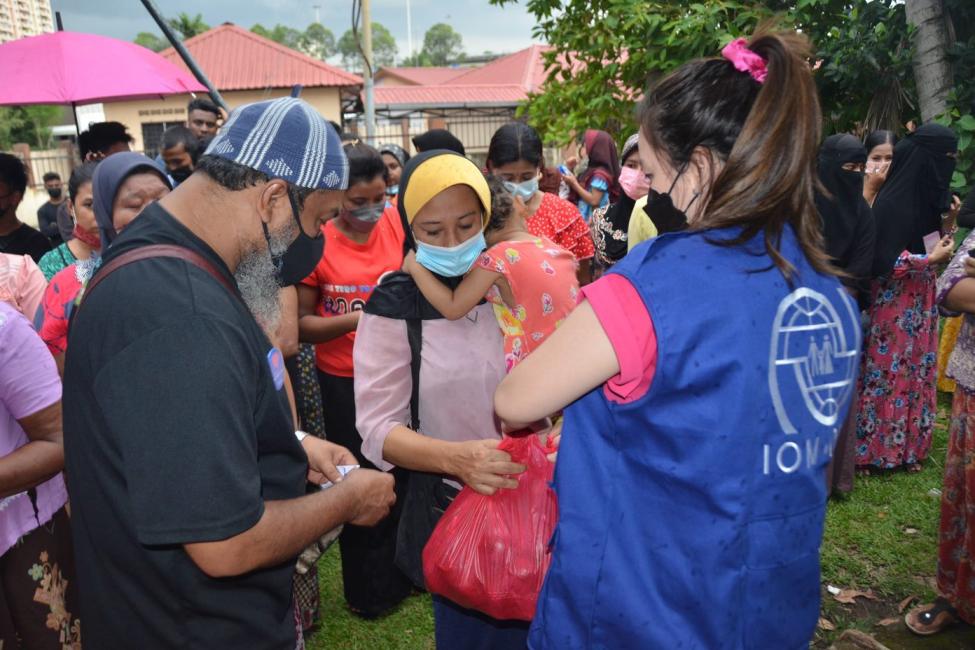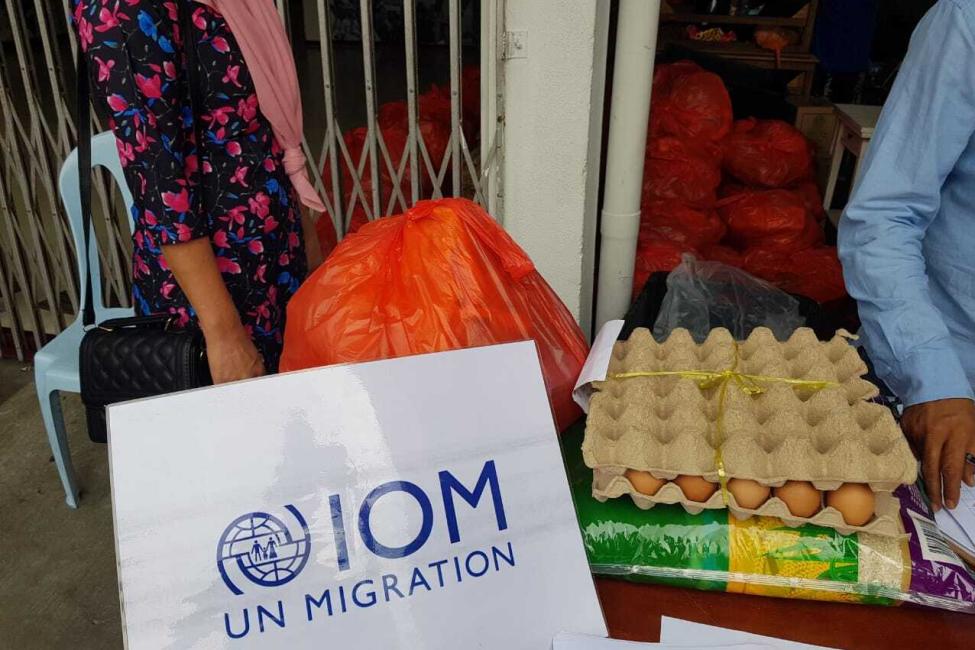-
Who We Are
WHO WE AREThe International Organization for Migration (IOM) is part of the United Nations System as the leading inter-governmental organization promoting since 1951 humane and orderly migration for the benefit of all, with 175 member states and a presence in over 100 countries.
About
About
IOM Global
IOM Global
-
Our Work
Our WorkAs the leading inter-governmental organization promoting humane and orderly migration, IOM plays a key role to support the achievement of the 2030 Agenda through different areas of intervention that connect both humanitarian assistance and sustainable development. Across Asia and the Pacific, IOM provides a comprehensive response to the humanitarian needs of migrants, returnees and host communities.
Cross-cutting (Global)
Cross-cutting (Global)
- Where we work
- Take Action
- Data and Resources
- 2030 Agenda
In 1982, Rafiq was merely 9 years old when he fled persecution in Myanmar and sought refuge together with his family in Malaysia.
They are among the hundreds of thousands of Rohingyas who suffered violence, discrimination, and persecution in Myanmar for generations. Many were killed, separated from families, and faced human rights violations. They were forced to flee from their home to neighbouring countries in search of safety.
Forty years later, he recalls the journey when his family was forced to flee their home as a traumatic experience, which compelled him to help others in similar conditions.
“I was taught that empathy is only possible when you look beyond a person’s identity and view them as a human being,” Rafiq said.
In 2017, Rafiq and his team established Human Aid Selangor Society (HASS), an NGO that provides aid services and learning opportunities to vulnerable communities in his host country, Malaysia.
It was not too long after the establishment of HASS that the COVID-19 outbreak started.
“When the pandemic hit, no one knew how to cope with it. Confirmed positive cases kept increasing and everything kept changing. Shops and businesses were closed, causing many migrants to lose income and protection. Also, migrants became scapegoats blamed for the spread of COVID-19,” Rafiq said.
“It is already difficult for migrant workers, including undocumented migrants, to have a job, seek medical treatment or access support when they face injustice but even more so during the COVID-19 pandemic. Undocumented migrants were also arrested and taken to immigration depots during the lockdown,” Rafiq added.
“Many people felt hopeless and contemplated suicide because they did not see any solution or hope. Sadly, the number of suicide cases increased, but we tried our best to provide support to migrants, including mental health assistance,” he added.
HASS’ priority is to help and support vulnerable people in need. At the beginning of the pandemic, the organization focused on food aid distribution and reaching out to government, the police, and other NGOs in order to come up with standard operating procedures (SOPs) and ensure their activities would not be disrupted. Later on, they worked on rental assistance, providing COVID-19 information and swab tests, and facilitating access to vaccines.
Since 2021, IOM has partnered with HASS to provide direct assistance to migrant communities impacted by COVID-19. “We thank IOM for providing support for the rental assistance and food aid programmes. Through the collaboration, HASS has supported 250 vulnerable people and created a database of the needs of members of the community. In the near future, we hope to be able to secure additional funding or resources to support more people in need,” Rafiq said.
"The collaboration with IOM is, to me, a very positive and good partnership. All of us here at HASS are very grateful and hopeful we can work together to expand the assistance to more affected migrants in the future,” Rafiq concluded.
The project is funded by Swedish International Development Cooperation Agency through the IOM’s Corporate Responsibility in Eliminating Slavery and Trafficking (CREST) Programme.


